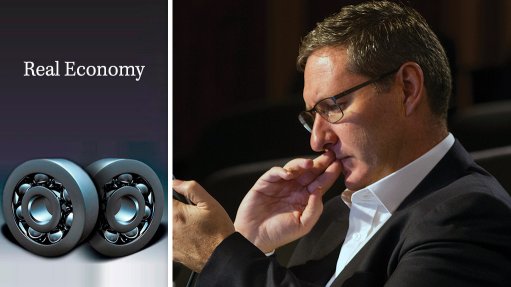
The delicate balancing of the factional interests within the African National Congress (ANC) was a significant feature of the National Executive Committee’s 105th anniversary statement.
It was even apparent in the seemingly bland section dedicated to electricity, which reads as follows: “South Africa has experienced less load-shedding since 2015 and we commend Eskom for the stabilisation of the electricity grid. Continued stabilisation, together with the addition of new capacity, will have positive effects on our economic growth and create new jobs. The ANC pledges to South Africans that we shall continue to balance the need for clean energy sources with ensuring security of supply. In this regard, we are still committed to ensuring that expanding nuclear capacity for energy will only take place at a pace and cost that the country can afford. We are also committed to expanding renewable-energy capacity and initiating ongoing projects to advance its use.”
Absent context, the paragraph is underwhelming, particularly in light of the economic damage wreaked by supply-side instability and rising tariffs over the past seven years. However, over that period, electricity has also opened up as a key front in the battle for hegemony within the ANC and government. The trenches could not, therefore, be made fully invisible on January 8, despite the best efforts of the landscapers brought in to drum home a message of “unity” – a word used no less than 37 times in the address.
For one faction, the key message will be: Eskom is back in charge, notwithstanding the painful few years during which its status as the jewel in the State’s crown of enterprises was seriously dulled; the ambitious new nuclear programme is firmly on track; and security of supply cannot be achieved in the absence of nuclear energy.
For the other faction, the sentence translates as follows: Eskom has improved its performance, but the situation remains fragile; affordable electricity, rather than utility dominance, is critical for economic growth and private renewables should, therefore, be expanded; while nuclear should not proceed at any cost.
This factional discourse is playing itself out in various forums, be it the Integrated Resource Plan hearings being hosted by the Department of Energy, the opinion pages of leading newspapers, or radio talk shows.
The debate has taken on a Trump-like intensity, however, on social- media platform Twitter. Hardly a day passes without a shot being fired in anger. The two sides are well dug in and the discourse is predictably hardly ever constructive.
It is far from clear whether a ‘South Africa first’ debate is even possible, given the hardening of hearts among the belligerents and the noxious factional politics enveloping just about every aspect of society. Should the battle become one of attrition, nobody will emerge victorious. Sadly, the leadership required to avoid such a scenario continues to remain elusive.